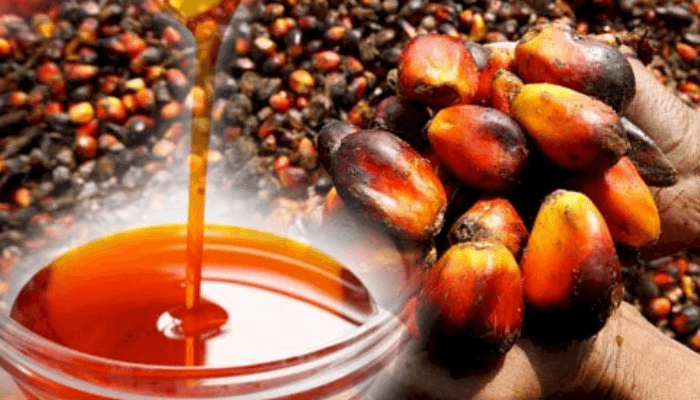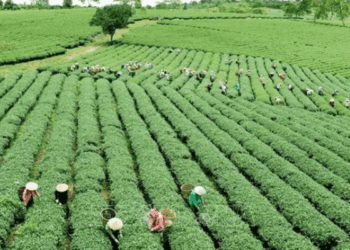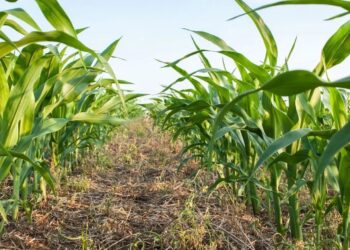In the 1960s, Nigeria accounted for more than 40 per cent of global palm oil production. Today, its share has plummeted to under 2 per cent with annual domestic production currently stands at about 1.4 million metric tons, while demand exceeds 2 million.
However, the federal government said the downward trend remains unacceptable with a renewed push to reclaim its lost glory in the global market.
The Federal Ministry of Agriculture and Food Security recently unveiled the National Palm Oil Traceability Framework and Interagency Committee, marking a critical milestone in Nigeria’s renewed journey toward sustainable and globally competitive palm oil production.
At the formal inauguration in Abuja, the minister of agriculture and food security, Senator Abubakar Kyari, represented by the ministry’s permanent secretary, Dr. Marcus Ogunbiyi, set the tone for a new era of agricultural accountability and economic ambition.
“Every litre of palm oil we produce tells a story, a story for our farmers, our industries, and our economy, today, we commit to making that story one of quality, sustainability, and global competitiveness,” Kyari declared.
At the moment, Nigeria spends over $600 million annually on palm oil imports.
This economic imbalance, according to the minister, is unacceptable for a country with rich agricultural resources and a strong palm oil heritage.
The newly-launched framework aims to change that trajectory.
“This is not just a ceremonial launch, “It is a strategic milestone in repositioning Nigeria as a global player in palm oil. With this framework, we aim to modernise our industry, ensure ethical sourcing, and drastically reduce our import bill,” Kyari emphasised.
The National Palm Oil Traceability Framework is a central plank in Nigeria’s implementation of the National Agricultural Technology and Innovation Policy (NATIP) 2022–2027.
The framework is expected to enhance transparency, ensure quality standards, and promote sustainable practices across the palm oil value chain.
“Sustainability is the language of the now and the future, in agriculture, it is no longer an option but a passport. A product without a story of origin will be a product without a market,” the minister added.
Traceability, he said, will provide Nigerian palm oil with a passport into international markets, giving local smallholder farmers who account for over 80 per cent of production access to premium markets and improved livelihoods.
The traceability framework also supports food safety, reduces waste, and boosts local industries by promoting a transparent supply chain.
According to the minister, it represents a “decisive step in modernising Nigeria’s palm oil sector.”
One of the key partners in the framework’s development is Solidaridad Nigeria, a development organisation implementing climate-smart oil palm systems under the National Initiative for Sustainable and Climate-Smart Oil Palm Smallholders (NISCOPS).
Backed by the governments of the Netherlands and the United Kingdom, Solidaridad has piloted traceability systems in Akwa Ibom, Cross River, Enugu, and Kogi States.
Speaking at the event, Kene Onukwube, Programme Manager for Solidaridad Nigeria, explained the long-term vision behind the framework.
“We expect two key outcomes: a functional traceability system for Nigeria’s palm oil and a national policy to support it, both aligned with NATIP,” Onukwube said.
He stressed that the current gaps in Nigeria’s domestic palm oil arrangements, especially in farm-level productivity and mill processing can only be addressed through a robust traceability system.
“With this framework, we can track the origin of every drop of palm oil. That brings efficiency, transparency, and accountability to the entire value chain,” he added.
Onukwube also highlighted Solidaridad’s leadership in creating a proof of concept across the four pilot states, which demonstrated the feasibility and impact of traceability.
“This process has shown that an effective traceability system is not only possible but essential, Solidaridad worked to build stakeholder awareness, midwife policy alignment, and provide technical support for this national framework”, he added.
The renewed push to reclaim the lost glory in the Nigeria’s palm oil industry also came with the federal government inaugurating the National Interagency Committee on Palm Oil Traceability, a multi-stakeholder body tasked with developing and implementing Nigeria’s traceability roadmap.
The committee will bring together representatives from federal and state agencies, private sector actors, farmers’ cooperatives, processors, market associations and development partners to harmonise efforts.
“Strong institutional collaboration is essential to unlocking the potential of this framework, it is through this committee that we can ensure all hands are on deck,” said the minister.
While the framework signals a significant policy shift, both government and development partners agree that the road ahead requires discipline, coordination, and long-term commitment.
“We’ve sensitised all relevant agencies and stakeholders about their unique roles in this process, Now, we must follow through with technical diligence and shared ownership of the mission,” said Onukwube.





